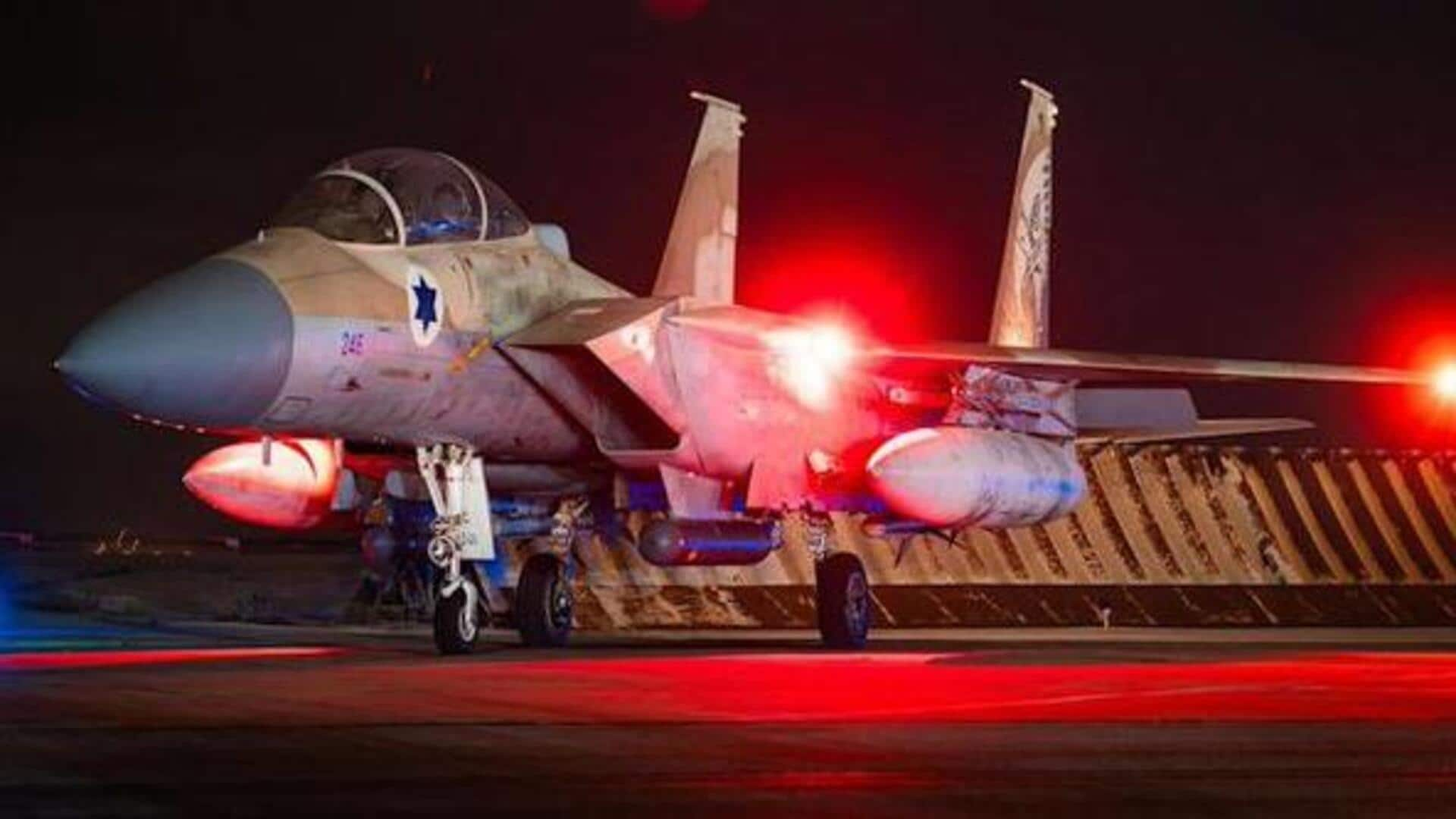
'100 aircraft, 2,000km journey': How Israel orchestrated attack on Iran
What's the story
In a major military operation against Iran, Israel launched more than 100 aircraft on Saturday. The fleet, which included advanced F-35 stealth fighters, flew a distance of around 2,000km to strike Iran's military bases, ballistic missile sites, weapons storage facilities, and air defenses. The Israeli Defense Forces (IDF) stated that the operation was strictly aimed at military targets in Tehran and Karaj, deliberately avoiding nuclear and oil facilities to prevent further escalation of conflict.
Strategic strikes
Israel's operation targets military sites, avoids nuclear facilities
The attack was executed in three waves, with the initial wave targeting Iran's radar and air defense systems. Subsequent waves focused on missile and drone bases used by Iranian forces. Israel reportedly used its advanced "Rampage" supersonic long-range missiles and "Rocks" extended stand-off air-to-surface missiles, which are both noted for their great precision. Each wave had 25-30 aircraft, with around 10 planes executing missile strikes and the others providing cover and diversion.
Operation
Security Cabinet authorized the strike
Defense Minister Yoav Gallant and Chief of Staff Lt. Gen. Herzi Halevi were stationed at the Kirya base, with a senior Israeli official saying that the Security Cabinet approved the operation. "The IDF is fully prepared for both offensive and defensive maneuvers, monitoring Iran and its proxies closely," IDF Spokesperson R.-Adm. Daniel Hagari said but confirmed there will be no changes in Home Front Command guidelines for the time being.
Retaliation and backing
Israel's response to 'relentless attacks,' US support
The IDF said these strikes were in retaliation to "relentless attacks" from Iran and its proxies since October 7. Rear Adm. Daniel Hagari, an Israeli military spokesperson, highlighted Israel's "right and duty to respond." The White House backed Israel's actions, calling them a proportional response to Tehran's earlier attacks. US officials confirmed Israel notified them of the timing a few hours before the operation.
Aftermath
Iran closes airspace, Israel warns against further escalation
In retaliation to the strikes, Iran shut its airspace, resulting in flight suspensions over Iran, Iraq, Syria, and Lebanon. Iraq suspended flights at all airports until further notice amid regional tensions. The Israeli military wrapped up its response to Iran's attacks with these targeted strikes but warned Iran of dire consequences if it starts further escalation.